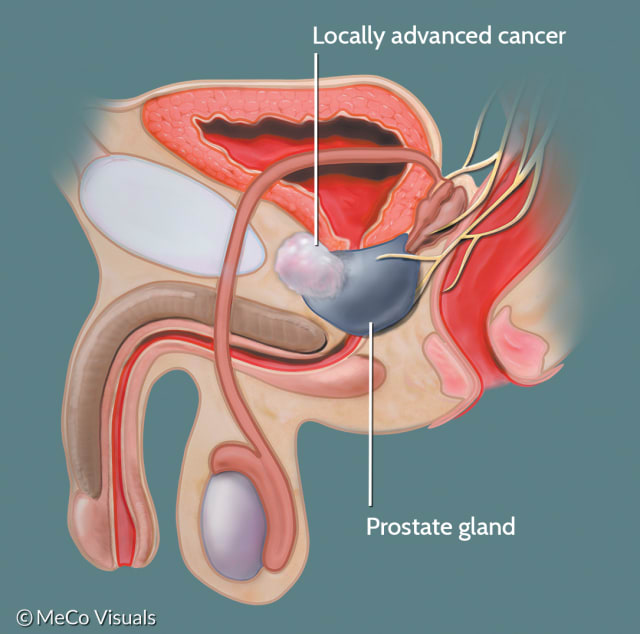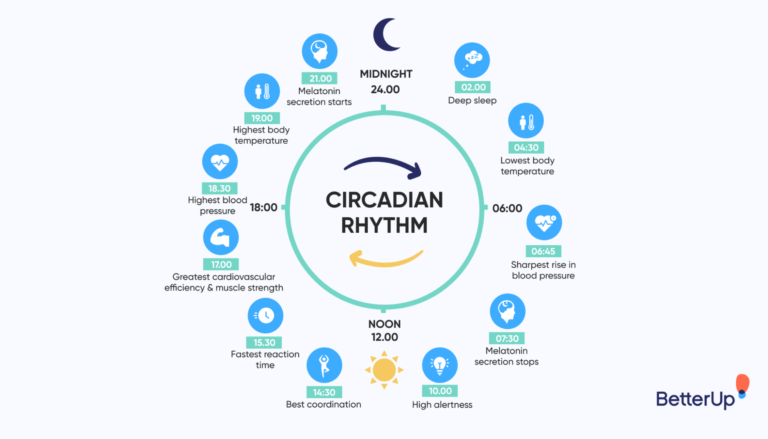Beyond Size: Factors Affecting Men’s Sexual Well-Being

Understanding Male Sexual Health
Male sexual health is a complex subject that encompasses various factors including physical, emotional, and psychological well-being. Understanding and addressing these aspects is vital for maintaining a healthy and fulfilling sexual life. Many individuals face challenges related to sexual health, such as erectile dysfunction, low libido, or performance anxiety, which can significantly impact their overall well-being and relationships. By gaining a comprehensive understanding of male sexual health, individuals can empower themselves to seek appropriate help and make informed decisions regarding their sexual well-being.

It is essential to recognize that male sexual health is not solely determined by physical factors. Psychological factors also play a crucial role in a man’s sexual well-being. Stress, for example, is a common issue that can negatively impact sexual desire and performance. When a person is under excessive stress, the body produces higher levels of cortisol, a hormone that may interfere with testosterone production and sexual function. Additionally, anxiety and depression can contribute to sexual difficulties, affecting libido, arousal, and overall satisfaction. Developing coping mechanisms and seeking support to manage stress and improve mental health is paramount for enhancing male sexual well-being. Understanding the inter-connectedness of physical and psychological factors is fundamental in addressing and improving male sexual health.
Psychological Factors Influencing Men’s Sexual Well-Being
Psychological factors play a crucial role in men’s sexual well-being. The state of one’s mental health, emotions, and mindset can significantly impact their sexual satisfaction and performance. It is essential to understand and address these psychological factors to ensure a fulfilling and healthy sexual life.
One psychological factor that can influence men’s sexual well-being is stress. High levels of stress can negatively impact sexual desire, arousal, and performance. The body’s stress response, known as the fight-or-flight response, can interfere with the physiological processes involved in sexual activity. Furthermore, stress can lead to feelings of anxiety and self-doubt, which can affect sexual confidence and satisfaction. It is crucial for men to find healthy ways to manage and alleviate stress, whether through relaxation techniques, exercise, or seeking support from a mental health professional.
The role of cognition in male sexual response
Human sexuality and the ability to experience sexual arousal and achieve orgasm is a complex interplay between physiological and psychological processes. While physical stimulation plays an obvious role, modern scientific research has established that cognitive factors like thoughts, beliefs and emotions also significantly impact a man’s experience and response to sexual stimuli. In this article, we will explore some of the key cognitive influences on male sexual arousal and discuss how maintaining an open and informed perspective can help enhance intimacy and relationships.
Visual stimuli and expectations
Our initial phase of sexual arousal often begins with visual stimulation such as seeing an attractive person. However, what we find visually appealing is greatly shaped by our cultural and personal experiences which form expectations (Saladin, 2012). Studies show that providing subjects with false information about what they will see can influence their subjective ratings of attractiveness and genital arousal. For example, men told an image will elicit a strong response report greater excitement even if the image is not explicit (Stoléru et al., 2012). This highlights how cues and prior expectations can impact appraisal and physical response through cognitive pathways in the brain.

Beliefs, attitudes and emotions
A person’s beliefs and emotional states also guide their interpretation of sexual cues. Individuals with more permissive attitudes tend to experience less guilt or anxiety during arousal which facilitates the arousal process (Carvalheira & Costa, 2017). On the other hand, strongly held negative beliefs, like viewing sex as sinful, lead to greater presence of inhibiting cognitions which can interfere with or reduce arousal (Weeks & Gambescia, 2016). Relationship satisfaction and emotional intimacy also positively correlates with more intense and pleasurable experiences (Mark et al., 2014). Negative moods are contrastingly linked to impaired sexual functioning by increasing distracting thoughts (Pauley & Hefner, 2014).
Fantasizing and contextual engagement
Fantasizing and mentally engaging with erotic scenarios and partners is another key cognitive facilitator of male arousal. Visualizing an exciting situation activates the same dopamine-fueled pleasure centers in the brain as physical stimulation does (Stoléru et al., 2012). Men who report more robust fantasies tend to experience greater arousability, enjoyment and orgasmic functioning (Levin, 2007). However, the contents and nature of fantasies are also culturally shaped. While permissive Western fantasies revolve around pleasure and variety, restricted religious contexts can induce unwarranted guilt or shame (Wéry & Billieux, 2016).
Stress and distraction
Cognitive interference arising due to excessive stress is perhaps the most common cause of sexual problems in men. Stress activates the body’s threat response which conflicts with arousal pathways, flooding the cortex with distracting thoughts (Peters et al., 2017). Concerns over performance or fears of being judged can similarly lead to anxiety that impedes momentary engagement needed for arousal. Disorders like depression are associated with a negative attribution style where sexual concerns are catastrophized (McCabe et al., 2010). Non-sexual mental distractions related to daily worries also reduce sensory awareness and cognitive availability required for arousal.
In summary, male sexual response involves a dynamic interplay between physiological reflexes and more complex cognitive processes. Beliefs, attitudes, fantasizing abilities, mood states and levels of stress all shape the cognitive interpretation of and engagement with sexual cues. Maintaining a balanced, fact-based understanding of sexuality along with minimizing excessive worries or judgement can help reduce cognitive barriers and maximize experiences of healthy intimacy and pleasure within relationships. For some, cultivating mindfulness, psychological counseling or medical assistance may also benefit sexual well-being by targeting unhelpful thought patterns or stress triggers. Overall, recognizing sexuality as a natural extension of emotional bonding need not conflict with any ethical or spiritual beliefs.
The Role of Stress in Men’s Sexual Health
Stress can have a significant impact on men’s sexual health, affecting both their physical and psychological well-being. When stress levels are high, the body produces an excess of cortisol, commonly referred to as the stress hormone. This hormonal imbalance can lead to a variety of sexual issues, including erectile dysfunction, reduced libido, and difficulty achieving orgasm.
One study conducted by researchers at the University of Texas found that men who reported high levels of stress were more likely to experience sexual dysfunction than those who reported low levels of stress. The study also revealed that stress-related sexual problems were more prevalent among younger men. This research suggests that stress management techniques may play a crucial role in maintaining optimal sexual health among men of all ages.

In addition to its physiological effects, stress can also impact men’s sexual well-being at a psychological level. High levels of stress can lead to feelings of anxiety, depression, and low self-esteem, all of which can contribute to sexual performance issues. It is essential for men to prioritize their mental health and seek support when needed to address stress-related concerns and maintain a healthy and fulfilling sexual life.
Understanding the role of stress in men’s sexual health is critical for both individuals and healthcare professionals. By recognizing the link between stress and sexual dysfunction, men can take proactive steps to manage stress levels, improve overall well-being, and enhance their sexual satisfaction. Seeking support from healthcare providers, practicing stress-reducing techniques such as mindfulness or exercise, and maintaining open communication with partners are just a few strategies that can help men navigate the challenges of stress and preserve their sexual health.
Relationship Dynamics and Their Impact on Men’s Sexual Well-Being
Relationship dynamics play a crucial role in men’s sexual well-being. The quality of a relationship, including factors such as communication, trust, and emotional intimacy, can significantly impact a man’s sexual satisfaction. A study conducted by researchers at the University of California found that men who reported higher levels of relationship satisfaction also reported higher levels of sexual satisfaction. This suggests that a healthy and supportive relationship can contribute to a fulfilling and satisfying sexual life for men.
On the other hand, relationship problems or conflicts can negatively affect a man’s sexual well-being. According to a study published in the Archives of Sexual Behavior, couples who reported higher levels of relationship distress also reported lower levels of sexual satisfaction. Relationship issues such as infidelity, lack of communication, or unresolved conflicts can create stress and lead to a decline in sexual desire and performance.
It is essential for men and their partners to recognize the importance of maintaining a healthy relationship for overall sexual well-being. Open and honest communication, trust-building activities, and regular intimacy can help strengthen the bond between partners and enhance sexual satisfaction. Seeking professional help, such as couples therapy or sex therapy, can also be beneficial for addressing relationship dynamics and improving men’s sexual well-being. By addressing relationship issues, men can improve their overall sexual health and experience greater satisfaction in their intimate lives.
Communication and Intimacy in Men’s Sexual Satisfaction
Effective communication and intimacy play crucial roles in men’s sexual satisfaction. Open and honest communication between partners allows for the expression of desires, concerns, and boundaries, which ultimately leads to a deeper understanding of each other’s needs. When partners can openly discuss their sexual desires, preferences, and concerns, it creates a foundation of trust, fostering an environment where both individuals feel heard and respected.
Intimacy goes beyond just physical connection; it encompasses emotional closeness as well. Building emotional intimacy involves establishing a strong emotional bond with your partner, which can enhance sexual satisfaction. When partners feel emotionally connected, it increases their willingness to be vulnerable and explore their desires together. Taking the time to engage in activities that promote emotional intimacy, such as sharing experiences, expressing gratitude, and showing affection, can contribute to a more fulfilling sexual relationship.
Research has shown that couples who effectively communicate and cultivate intimacy often report higher levels of sexual satisfaction. In a study conducted by Johnson, et al. (2014), it was found that couples who emphasized open communication and emotional intimacy experienced increased sexual satisfaction and greater relationship satisfaction overall. Therefore, investing in effective communication and fostering emotional intimacy can have a positive impact on men’s sexual well-being and overall relationship satisfaction.
Lifestyle Choices and Their Effects on Male Sexual Health
Lifestyle choices play a significant role in male sexual health. Certain habits and behaviors can either enhance or hinder a man’s sexual well-being. It is essential to understand the impact that our choices can have on our overall sexual functioning and satisfaction.

One lifestyle choice that can have a detrimental effect on male sexual health is excessive alcohol consumption. While alcohol may initially lower inhibitions and increase arousal, excessive use can lead to erectile dysfunction, reduced libido, and difficulties in achieving orgasm. A study conducted by the National Institute on Alcohol Abuse and Alcoholism found that chronic alcohol abuse can disrupt the normal hormonal balance and impair the functioning of the nervous system, affecting sexual performance. It is recommended to limit alcohol consumption to moderate levels to support optimal sexual health.
Another lifestyle choice that can influence male sexual health is smoking. Research has shown a clear connection between smoking and erectile dysfunction. The chemicals present in cigarettes damage blood vessels and reduce blood flow to the penis, making it harder to achieve and maintain an erection. One study published in the Journal of Sexual Medicine found that men who smoked more than 20 cigarettes a day were significantly more likely to experience erectile dysfunction compared to nonsmokers. Quitting smoking not only has numerous health benefits but can also improve sexual functioning and overall sexual satisfaction.
In conclusion, our lifestyle choices can have a powerful impact on our sexual health as men. By making informed choices, such as moderating alcohol consumption and quitting smoking, we can support optimal sexual functioning and enhance our overall sexual well-being. It is important to prioritize our health and make mindful decisions that will contribute to a fulfilling and satisfying sexual life.
The Influence of Physical Fitness on Men’s Sexual Well-Being
Physical fitness plays a crucial role in men’s sexual well-being. Engaging in regular exercise and maintaining a healthy weight can have a positive impact on various aspects of sexual health. According to a study published in the Journal of Sexual Medicine, men who were physically fit had a higher likelihood of reporting sexual satisfaction compared to men who had lower fitness levels. This may be attributed to the fact that exercise increases blood circulation throughout the body, including the genital area, which can enhance erectile function and sexual responsiveness.

Additionally, physical fitness can also boost confidence and self-esteem, which are essential for a fulfilling sexual experience. When individuals feel good about their bodies and are comfortable in their own skin, they are more likely to enjoy intimacy and engage in open communication with their partner. Regular exercise releases endorphins, the feel-good hormones, reducing stress, anxiety, and depression, which can often interfere with sexual desire and performance. Exercise has also been shown to improve overall energy levels, which can contribute to increased stamina and endurance during sexual activity.
Incorporating physical fitness into one’s lifestyle doesn’t necessarily require intense workouts or spending hours at the gym. Engaging in activities such as brisk walking, cycling, swimming, or even practicing yoga can yield significant benefits for men’s sexual well-being. It’s crucial to find an activity that suits one’s preferences and abilities to ensure consistency and enjoyment. By prioritizing physical fitness, men can enhance their sexual health and overall quality of life.
Aging and its Effects on Male Sexual Functioning
As men age, they may start noticing changes in their sexual functioning. While these changes can vary from person to person, it’s important to understand the potential effects of aging on male sexual health. One of the most common concerns for older men is erectile dysfunction (ED). According to a study published in the Journal of Sexual Medicine, the prevalence of ED increases with age, with approximately 40% of men over the age of 40 experiencing some form of ED. This can be attributed to a variety of factors, including reduced blood flow to the penis, hormonal changes, and the presence of underlying medical conditions such as diabetes or cardiovascular disease.
In addition to ED, aging can also affect other aspects of male sexual functioning, such as decreased libido or difficulty achieving orgasm. These changes can be attributed to hormonal shifts, including a decline in testosterone levels that typically occurs with age. It’s important to note that while these changes are common, they are not inevitable. Seeking medical advice from a healthcare professional, such as a urologist or sexual health specialist, can help identify any underlying causes for concern and explore potential treatment options. By addressing these issues, older men can continue to enjoy a fulfilling and satisfying sex life well into their golden years.
Medical Conditions and Medications Impacting Men’s Sexual Health
Medical conditions and medications can significantly impact men’s sexual health, affecting their overall well-being and quality of life. Certain health conditions can directly or indirectly affect sexual function, including but not limited to erectile dysfunction (ED), cardiovascular disease, diabetes, hormonal imbalances, and neurological disorders.
Erectile dysfunction, a common condition among men, can be caused by various factors, including underlying medical conditions like diabetes, high blood pressure, and heart disease. These conditions can lead to poor blood flow and nerve damage, impacting a man’s ability to achieve or maintain an erection. Additionally, certain medications used to treat these health conditions can also have adverse effects on sexual function.
For example, some blood pressure medications, antidepressants, and antipsychotics can cause sexual side effects, such as decreased libido, difficulty achieving orgasm, or erectile dysfunction. It is essential for individuals to communicate openly with their healthcare providers about any sexual issues they may be experiencing, as alternative medications or treatment strategies may be available.
Understanding the potential impact of medical conditions and medications on sexual health is crucial for both men and healthcare professionals. By recognizing these factors, individuals can seek appropriate medical guidance and explore treatment options that may help alleviate or manage sexual difficulties. It is important to remember that discussing sexual concerns with a healthcare provider is a pivotal step towards improving one’s sexual well-being and overall quality of life.
Substance Abuse and its Impact on Male Sexual Well-Being
Substance abuse, particularly when it comes to drugs and alcohol, can have a significant impact on male sexual well-being. The negative effects of substance abuse on the body can manifest in various ways, one of which is through the impairment of sexual function. Research has shown a strong link between substance abuse and sexual dysfunction in men, leading to difficulties in achieving and maintaining an erection, decreased libido, and overall dissatisfaction with their sexual experiences.
One of the main reasons why substance abuse affects male sexual well-being is because of its impact on the body’s neurochemical balance. Drugs and alcohol can disrupt the normal production and release of hormones and neurotransmitters that are essential for sexual function, such as testosterone and dopamine. This disruption can lead to hormonal imbalances and decreased sensitivity to sexual stimuli, making it harder for men to achieve and sustain an erection. Additionally, substance abuse can also damage the nerves and blood vessels involved in the erectile process, further exacerbating the problem.
The detrimental effects of substance abuse on male sexual well-being should not be taken lightly. Caring for one’s sexual health means taking a holistic approach to overall well-being, which includes addressing any substance abuse issues. Seeking professional help, such as counseling or rehabilitation programs, can be crucial in overcoming drug and alcohol addiction and ultimately improving sexual function. Additionally, adopting a healthy lifestyle, incorporating regular exercise, and practicing stress management techniques can also contribute to the recovery process and enhance sexual well-being. It is essential to remember that recovery is possible, and with the right support and guidance, men can reclaim their sexual health and overall quality of life.
The Importance of Emotional Well-Being in Men’s Sexual Satisfaction
Emotional well-being plays a crucial role in men’s sexual satisfaction. It is not just physical factors that impact sexual health but also the emotional and psychological state of an individual. When it comes to sexual satisfaction, it is important for men to have a positive and healthy mindset.
One of the key aspects of emotional well-being in men’s sexual satisfaction is the ability to establish and maintain healthy relationships. Open communication, trust, and emotional intimacy are vital elements that contribute to a fulfilling sexual experience. When men feel valued, supported, and understood in their relationships, it can positively influence their overall sexual well-being. On the other hand, relationship conflicts, unresolved issues, or lack of emotional connection can lead to sexual dissatisfaction and even performance anxiety.
It is important for men to prioritize their emotional well-being by addressing any underlying issues and seeking professional help if needed. This may involve therapy or counseling to improve communication skills, resolve conflicts, and address any emotional or psychological barriers that are impacting their sexual satisfaction. By taking care of their emotional well-being, men can enhance their overall sexual satisfaction and enjoy healthier and more fulfilling intimate experiences.
Cultural and Societal Influences on Men’s Sexual Health
Cultural and societal influences play a significant role in shaping men’s sexual health. The beliefs, values, and norms prevalent in a given culture can impact the way men view and approach their sexual well-being. In many cultures, there are certain expectations and pressures placed on men to conform to traditional masculine ideals, which can have both positive and negative effects on their sexual health.
For instance, some cultures may prioritize sexual performance and prowess as a measure of masculinity. This can create pressure for men to perform at a certain level, leading to anxiety and stress related to sexual encounters. On the other hand, cultures that promote open and honest discussions around sexuality can contribute to a healthier and more positive sexual experience for men.
Societal attitudes towards topics such as contraception, sexual consent, and sexual health also play a role in influencing men’s sexual well-being. In societies where there is limited access to sexual education and healthcare services, men may face challenges in understanding and addressing their sexual health needs. Conversely, in societies that encourage comprehensive sex education and provide accessible healthcare, men may have better knowledge and resources to maintain their sexual health.
It is important to acknowledge and understand these cultural and societal influences on men’s sexual health in order to provide effective support and education. By addressing these influences and promoting a holistic approach to sexual well-being, we can help men navigate the complexities of their sexual health and promote healthier attitudes and behaviors.
Addressing Performance Anxiety and Erectile Dysfunction in Men
Performance anxiety and erectile dysfunction are common concerns that many men experience at some point in their lives. These issues can have a significant impact on sexual well-being and overall quality of life. Addressing performance anxiety and erectile dysfunction requires a comprehensive approach that combines medical interventions, psychological support, and lifestyle modifications.
When it comes to performance anxiety, it’s important to understand that it is often rooted in psychological factors such as fear of failure, self-doubt, or unrealistic expectations. Counseling or therapy can be beneficial in helping men address these underlying issues and develop strategies to manage their anxiety. Techniques like cognitive-behavioral therapy and mindfulness-based stress reduction have shown promising results in reducing performance anxiety and improving sexual performance.
In the case of erectile dysfunction, it’s essential to assess for any underlying medical conditions that may contribute to the problem. Conditions such as diabetes, high blood pressure, or cardiovascular disease can affect blood flow to the penis and interfere with achieving and maintaining an erection. Treatment options for erectile dysfunction may include medications, such as phosphodiesterase-5 inhibitors, vacuum erection devices, or in some cases, surgical interventions.
In addition to medical interventions and psychological support, lifestyle modifications can play a crucial role in addressing both performance anxiety and erectile dysfunction. Incorporating regular exercise, maintaining a healthy weight, and adopting a balanced diet have been shown to improve sexual function. Avoiding smoking and excessive alcohol consumption is also important, as these habits can negatively impact sexual health.
Addressing performance anxiety and erectile dysfunction requires a multidimensional approach, considering both physical and psychological factors. Seeking professional help from a healthcare provider and discussing these concerns openly is the first step towards finding appropriate solutions. Remember, it’s essential to approach these issues with patience, understanding, and a focus on overall well-being. With the right support and interventions, men can regain confidence in their sexual health and enhance their overall sexual satisfaction.
Strategies for Enhancing Men’s Sexual Self-Confidence
Enhancing sexual self-confidence is vital for men to foster a healthy and satisfying sexual life. It not only benefits their psychological well-being but also helps in maintaining strong and fulfilling relationships. There are several strategies that can be employed to boost men’s sexual self-confidence.
First and foremost, open and honest communication with your partner is essential. Discussing your desires, fears, and expectations can promote a deeper understanding and create an environment of trust and support. This enables both partners to openly express their needs and concerns, leading to a more fulfilling sexual experience. Additionally, actively seeking knowledge about sexual health and techniques can increase self-assurance. Reading books, attending workshops, or consulting sex therapists can provide valuable insights and techniques to enhance sexual satisfaction. Remember, knowledge is power, and better understanding one’s own body and its responses can increase confidence in sexual performance.
Furthermore, taking care of physical health through regular exercise and a balanced diet can have a positive impact on sexual self-confidence. Regular exercise not only improves overall well-being but also increases blood flow to the genitals, potentially improving erectile function. A healthy diet rich in fruits, vegetables, and lean proteins can provide essential nutrients and promote optimal sexual health. It is important to note that managing stress effectively is crucial for boosting self-confidence in sexual encounters. Engaging in stress-reducing activities such as yoga, meditation, or hobbies can help alleviate anxiety and promote a calmer state of mind during sexual encounters.
In conclusion, enhancing men’s sexual self-confidence requires open communication, seeking knowledge, physical well-being, and stress management. By implementing these strategies, men can cultivate a positive mindset and enjoy a more satisfying and fulfilling sexual life.
Seeking Professional Help for Men’s Sexual Issues
When it comes to seeking professional help for men’s sexual issues, it is important to understand that you are not alone. Many men experience challenges or concerns related to their sexual well-being, and there are healthcare professionals who specialize in addressing these issues. Seeking professional help is a positive and proactive step towards improving your sexual health and overall well-being.
A healthcare provider who specializes in men’s sexual health can offer a range of services and treatments tailored to your specific needs. They are familiar with common conditions such as erectile dysfunction, premature ejaculation, low libido, and performance anxiety, and can provide accurate diagnosis and effective treatment options. These professionals are trained to ask sensitive questions and create a safe and nonjudgmental space for you to discuss your concerns. With their expertise and knowledge, they can guide you towards the most appropriate strategies, interventions, and lifestyle modifications to optimize your sexual health. Remember, taking the initiative to seek professional help is a sign of strength and a commitment to your own well-being.
What are some common medical conditions that can impact men’s sexual health?
Some common medical conditions that can impact men’s sexual health include diabetes, high blood pressure, heart disease, obesity, and hormonal imbalances.
Can substance abuse affect men’s sexual well-being?
Yes, substance abuse can have a significant impact on men’s sexual well-being. It can lead to erectile dysfunction, reduced libido, and overall decreased sexual satisfaction.
How does aging affect male sexual functioning?
Aging can affect male sexual functioning by causing a natural decline in testosterone levels, which can lead to decreased libido and difficulties achieving and maintaining erections.
Are there any lifestyle choices that can negatively affect male sexual health?
Yes, certain lifestyle choices such as smoking, excessive alcohol consumption, poor diet, and lack of exercise can all have a negative impact on male sexual health.
What are some strategies for enhancing men’s sexual self-confidence?
Some strategies for enhancing men’s sexual self-confidence include open communication with their partner, exploring and understanding their own desires and preferences, seeking therapy or counseling, and adopting a healthy lifestyle.
How can cultural and societal influences impact men’s sexual health?
Cultural and societal influences can impact men’s sexual health by creating unrealistic expectations, promoting stereotypes, and stigmatizing certain sexual behaviors or preferences, which can lead to feelings of shame, guilt, or inadequacy.
How can performance anxiety and erectile dysfunction be addressed in men?
Performance anxiety and erectile dysfunction can be addressed in men through therapy or counseling, open communication with their partner, exploring relaxation techniques, and considering medical interventions or medications if necessary.
When should men consider seeking professional help for their sexual issues?
Men should consider seeking professional help for their sexual issues if they are experiencing persistent difficulties or dissatisfaction in their sexual relationships, if their sexual problems are causing distress or impacting their overall well-being, or if they have underlying medical conditions that may be contributing to their sexual health concerns.







